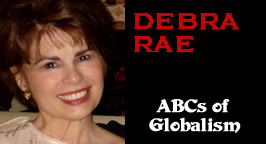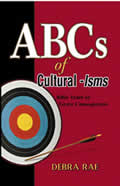ECONOMICS
OF MEGACHURCHIANITY
PART 2
By
Debra Rae
October 22, 2011
NewsWithViews.com
Communitarian Church Growth Movement
When on track, the corporate world is likened to a well-oiled machine that is propelled by one integrative philosophy—namely, Total Quality Management (TQM). TQM ensures continual improvement of the quality of products and processes used so that, in the end, products and/or services offered meet or even exceed customers’ expectations. Together, corporate management, the workforce, suppliers, and customers work in tandem to better the bottom line.
In similar fashion, the Christian church is likened to an efficiently functioning human body with all of its members and officers admirably arranged, ideally proportioned, compacted, and fitly joined together as one. While each part is dependent on the others, all parts submit to the headship of Christ. These fashion one body given over to one faith with one God and Father of all who is over all, and through all, and in all.[2]
Despite superficial similarities, the corporate world and the spiritual body of Christ part ways on matters of profound significance. Biblical Christianity focuses on personal relationship with God that inspires spiritual transformation. Bypassing biblical essentials for the sake of numbers, the Communitarian Church Growth Movement takes its cues from corporate America more so than from the Bible.
Rather than heed a Bible-based, Christ-centric model, transformational churchianity practices outcome-based, purpose-driven religion managed by objectives that are geared toward serving customers.
Transformational Churchianity
Transformation churches use modern marketing techniques to attract and hold onto large numbers of people. Church leaders disciple their converts with Total Quality Management-style techniques. Common practices include committed leadership and strategic planning, cross-functional product design and training, process and supplier quality management, customer and employee involvement, information and feedback.
Ultimately, agents of social change within the ranks of the church leave their mark in the community and the world; however, their systems-based management philosophies are not rooted in the Bible, but rather in the work of two globally acclaimed experts in business management and methodology—namely, Peter Drucker and Edwards Deming.
Peter Drucker
An influential writer, management consultant, and self-described social ecologist, the late Peter Ferdinand Drucker[2] coined the term knowledge worker and, later in his life, introduced knowledge work productivity as the next frontier in management.
He’s credited with having invented corporate society. Even the church (a human invention in Druker’s view) must balance a variety of mundane needs and societal goals. Ostensibly bringing out the best in people, Drucker nurtured a sense of community.
Well into his nineties, Drucker consulted businesses and non-profit organizations. Volunteering, he believed, is key to fostering healthy community. Drucker insisted that all institutions bear responsibility to the whole of society for the common good.
Among Drucker’s most notable clients were General Motors, Coca-Cola, Citicorp, IBM, and Intel. With ever-increasing notoriety, the Communitarian Church Movement emerges today as yet another behemoth of Drucker’s corporate society model.
Edwards Deming
A contemporary of Peter Drucker, William Edwards Deming was an American statistician, professor, author, lecturer, and consultant best known for his work in Japan from 1950 and on. Deming's message to Japan's chief executives was: To improve quality is to reduce expenses while increasing productivity and market share.[3]
Granted,
the Drucker-Deming mindset serves 21st century business interests well;
however, when implemented in church ministries modeled by TQM gurus—e.g.,
Drs. Robert Schuller and Rick Warren and the Rev. Bill Hybels—it’s
problematic.
Dr. Robert Schuller
A great “possibility [transformational] thinker”[4] and master of modern marketing, Dr. Robert Schuller founded the Crystal Cathedral in Garden Grove, California. But first, Schuller surveyed the “felt needs” of his community in Southern California. Then he designed and opened an innovative “drive-in church.”
One former attendee described his experience as “a trip,” being able to “smoke and be in church at the same time [while] at a drive-in during the daytime.” Another recalled, “Ushers came with baskets on poles for the donations if you remained in your car. I remember my mom in her bathing suit ready for Huntington Beach right after the service.”
Rev. Bill Hybels
Dr. Schuller credits the founder of Willow Creek Community Church in South Barrington, Illinois, for extending his church growth principles. Rev. Bill Hybels’ seeker-sensitive church is broadly known as the prototypical mega-church featuring contemporary worship, use of drama, and messages friendly to noncustomer seekers.[5]
Dr. Rick Warren
Arguably, the acclaimed author of The Purpose Driven Church: Growth Without Compromising Your Message and Mission, Dr. Rick Warren, has outdone both the Revs. Schuller and Hybels. Warren holds his doctorate of theology degree from one of the strongest proponents of the Church Growth Movement, Fuller Theological Seminary.
As in Drucker’s economy, Warren always starts the change process with noncustomers (unbelievers). TQM churches use feedback gleaned from community surveys specifically designed to focus on the needs of unbelievers. So it was with Dr. Rick Warren’s Saddleback Valley Community Church in Mission Viejo, CA.
Social Experimentation Toward Church Growth
By his own admission, Dr. Warren condones social experimentation on his congregation. Indeed, he views Saddleback as a kind of Research and Development Department of the church at large. Word has it he’s trained over 150,000 pastors and church leaders in church growth principles.
Unfortunately, transformational churchianity exchanges Holy Spirit guidance for artful manipulation of Hegelian dialectic. That is to say, The Church Growth Movement capitalizes on a repeated process of continual, incremental change until, finally, the Word of God is interpreted to mean something altogether different from its original intent. In the process, the set-apart, Triumphant Church succumbs to agendas that advance seeker- and profit- friendly social services.
Toward this end, Rick Warren fingers the pulpit as the ultimate tool for church growth. The most important thing in communication, according to Peter Drucker, is to hear what’s not being said. Warren agrees. No doubt by design, this communitarian pastor’s attire and presentation are pleasantly informal. Icebreakers and sketchy notes eliminate need for a cumbersome Bible and tedious dogma.[6]
It’s true. Christians may freely enjoy informality, humor, social activities, and the arts. Each has its place. However, a superabundance of church programs and entertainment, when coupled with Hegelian dialectic, inspires creative interpretations only loosely akin to the Bible.
Change Starts with the Noncustomer
Human thinking apart from divine revelation brings about a new thesis or reality upon which all can agree, but by nature it’s hostile toward God.[7] Following Drucker’s managerial principles, unbelievers (noncustomers) are brought into the church, and that’s good. But the follow up process of subtle, albeit continual change sadly misses the mark.
Given the TQM model, the church capitalizes on operant conditioning principles advanced by B.F. Skinner, who found that any behavior followed by a reinforcing stimulus results in an increased probability of that behavior’s reoccurring, and a behavior no longer followed by the stimulus decreases its probability.
Carefully crafted reinforcing stimuli may well nurture church growth and, hence, the bottom line (this, by means of tithes, offerings, and human resources), but then Skinner is no friend to authentic Christianity. In 1973, he signed the Humanist Manifesto II and thereby lauded relativistic values that expressly dethrone God while, at the same time, exalting human dignity and worth based on self-determination through reason.
The Skinnerian method of “successive approximations,” called shaping, at first reinforces a behavior only vaguely similar to the one desired. Once that behavior is more firmly established (i.e., by noncustomer seekers), a good social engineer seeks variations that more closely approximate what’s ultimately wanted (i.e., by repeat customers).
At first, newcomers enjoy sanitized church grounds void of religious symbols that might offend nonbelievers; what’s more, they merit preferred parking slots. Once would-be members are pinpointed, trained greeters expend a great deal of effort to schmooze them.
Once on board, the noncustomer newcomer eagerly jumps the bandwagon to help perpetuate the very process that successfully wooed and won him into the fold. Together, corporate management (church government) and its workforce (customers, both new and seasoned) work in tandem to target and draw additional noncustomer newcomers.
This they accomplish by tailoring policies and programs that pander to pinpointed pre-Christians (seekers). Noncustomers are viewed as potential human resources[8] whose talents and means are deemed useful toward furthering work of the corporate church founded on human effort and entrepreneurship.
| Subscribe to the NewsWithViews Daily News Alerts! |
Biblically, the church is the ekklesia (“called out ones,” each with gifts to share) who separate themselves from the profane world and assemble as a body of believers in order to admonish, comfort, encourage, and edify each other with a word, psalms, hymns, and spiritual songs as unto the Lord. In turn, those built up and anointed go out into the world to yield to the Master Potter and to fulfill the Great Commission.[9]
No doubt TQM ensures continual improvement of the quality of products and processes used so that, in the end, products and/or services offered meet or even exceed customers’ expectations.
But the communitarian church has it all wrong. Expectations of customers (believers) or noncustomers (seekers) don’t much matter. The work of the church is not man-centric. Her mission is to please God, not man; and as good and faithful servants, believers rightly seek the praise of God, not their fellows.[10]
More to come in Part 3.
Click here for part -----> 1, 2, 3,
Footnotes:
1.
Ephesians 4:5.
2.
Tarrant, John C., Drucker: The Man Who Invented the Corporate Society
(1976), ISBN 0-8436-0744-0.
3.
Edwards
Deming
4.
Possibilities thinking—Involves mutual processing for mutual benefit.
Set aside as cumbersome anchors that block the dialectic process, facts
and fixed beliefs bow to constructivist thought. A carefully honed,
collaborative team voice trumps line-upon-line biblical knowledge. Attention
is directed instead to pinpointed felt needs that demand to be met in
society.
5.
Bill
Hybels
6.
7.
James 4:4; Romans 8:7
8.
Human Resources are best viewed as workers, not thinkers; followers,
not leaders; group members, not individuals. Ever learning, they fail
to discover and embrace to the full Bible truth and sound doctrine (Isaiah
5:20; 2 Timothy 3:7). Their development and management are accomplished
by means of lifelong learning, interdisciplinary approaches, systems
thinking, partnerships, multicultural perspectives, and empowerment
principles—all designed to fit that human resource to the workforce
and/or social needs of the community.
9.
10.
John 5:41-44; Matthew 25:14-30.












 Share
This Article
Share
This Article






